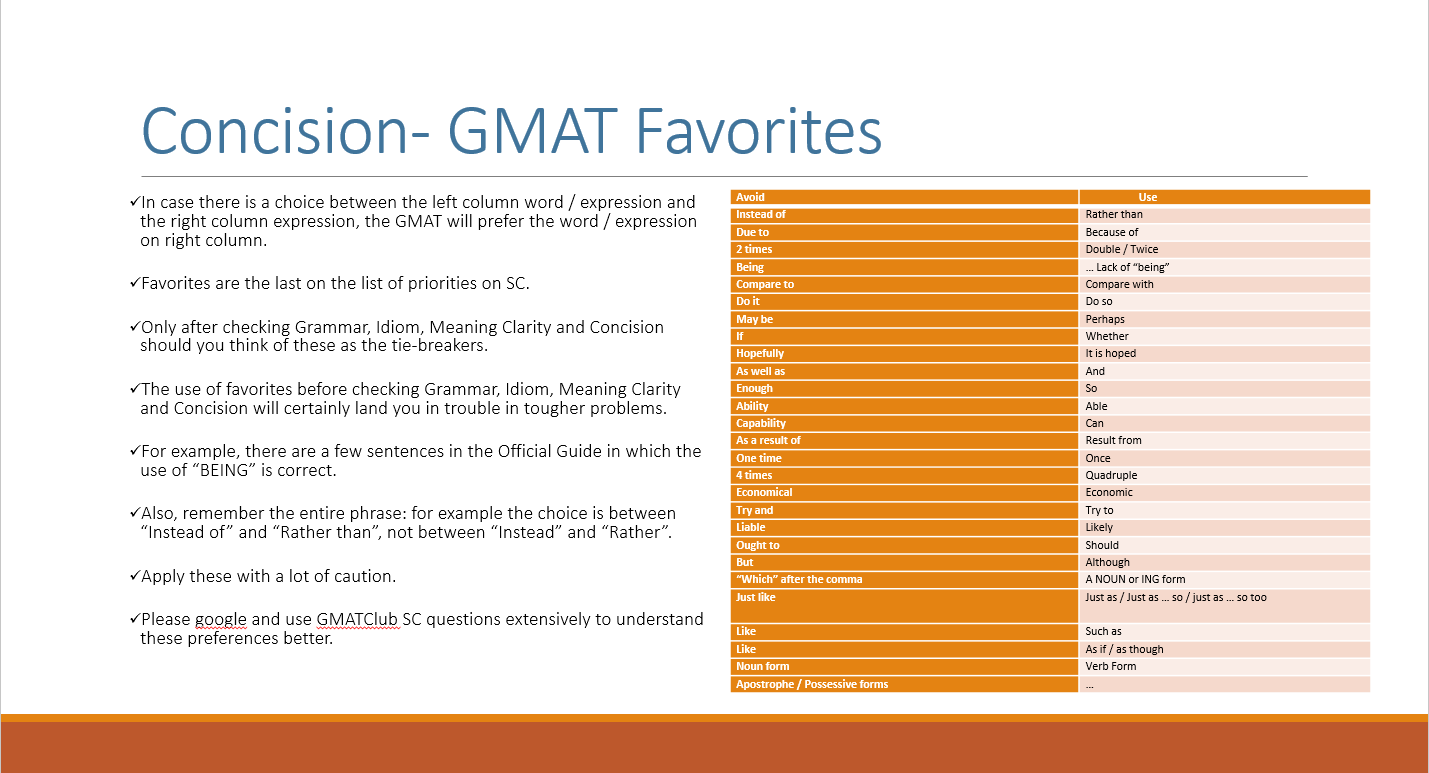Events & Promotions
|
|

GMAT Club Daily Prep
Thank you for using the timer - this advanced tool can estimate your performance and suggest more practice questions. We have subscribed you to Daily Prep Questions via email.
Customized
for You
Track
Your Progress
Practice
Pays
Not interested in getting valuable practice questions and articles delivered to your email? No problem, unsubscribe here.
- Nov 18
11:00 AM PST
-12:00 PM PST
Join us in a live GMAT practice session and solve 30 challenging GMAT questions with other test takers in timed conditions, covering GMAT Quant, Data Sufficiency, Data Insights, Reading Comprehension, and Critical Reasoning questions. - Nov 22
11:00 AM IST
-01:00 PM IST
Do RC/MSR passages scare you? e-GMAT is conducting a masterclass to help you learn – Learn effective reading strategies Tackle difficult RC & MSR with confidence Excel in timed test environment - Nov 23
11:00 AM IST
-01:00 PM IST
Attend this free GMAT Algebra Webinar and learn how to master the most challenging Inequalities and Absolute Value problems with ease. - Nov 25
10:00 AM EST
-11:00 AM EST
Prefer video-based learning? The Target Test Prep OnDemand course is a one-of-a-kind video masterclass featuring 400 hours of lecture-style teaching by Scott Woodbury-Stewart, founder of Target Test Prep and one of the most accomplished GMAT instructors.
souvik101990
 Expert
Expert
Alum
Joined: 19 Mar 2012
Last visit: 11 Nov 2025
Posts: 4,321
Given Kudos: 2,326
Location: United States (WA)
Concentration: Leadership, General Management
Schools: Ross '20 (M)
GMAT 1: 760 Q50 V42

GMAT 2: 740 Q49 V42 (Online)

GMAT 3: 760 Q50 V42 (Online)

GPA: 3.8
WE:Marketing (Non-Profit and Government)
Expert reply
Kudos
Bookmarks
Hey folks!
So, I have resumed my GMAT preparation and thought about making an "advanced" PPT for us.
Most notes are from Manhattan resources and Notes from GMATClub alums
Enjoy
Also attached a Question Bank specifically testing the advanced topics.
Here is a sample slide from the PDF

sample.png [ 67.33 KiB | Viewed 70528 times ]
So, I have resumed my GMAT preparation and thought about making an "advanced" PPT for us.
Most notes are from Manhattan resources and Notes from GMATClub alums
Enjoy
Also attached a Question Bank specifically testing the advanced topics.
Here is a sample slide from the PDF
Attachment:
sample.png [ 67.33 KiB | Viewed 70528 times ]
Attachments
![]() SC advanced Question Bank.pdf [215.68 KiB]
SC advanced Question Bank.pdf [215.68 KiB]
Downloaded 15988 times
![]() Advanced Sentence Correction.pdf [510.4 KiB]
Advanced Sentence Correction.pdf [510.4 KiB]
Downloaded 18121 times
Kudos
Bookmarks
You sniff out the blood in the water from a mile away. a shark
Amazing
PS: welcome back into the arena.........
Amazing
PS: welcome back into the arena.........
Kudos
Bookmarks
Great Compilation!!
PPT format very helpful.
Do you have the answer key of the question bank??
Will be gr8 to know the Question bank source.
PPT format very helpful.
Do you have the answer key of the question bank??
Will be gr8 to know the Question bank source.









